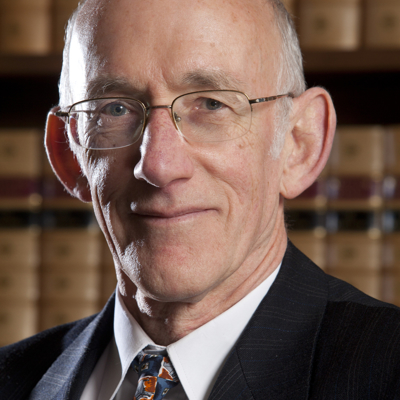Scottish Government must address unregulated deprivations of liberty
The Scottish Government’s continued failure to ensure deprivations of liberty are appropriately regulated must be addressed as a matter of priority, according to the Law Society of Scotland.
In its response to the Scottish Mental Health Law Review’s Additional Proposals Consultation, the Society acknowledges the unavoidable effect that restricted resources will have on the timing and extent of the final recommendations’ implementation.
Adrian Ward (pictured), Convener of the Law Society of Scotland's Mental Health and Disability Committee, said: "Clearly if an issue which falls within the scope of the Review impacts an individual’s life, then that issue is an important one. But where resources are limited, the recommendations must focus on the areas where the most widespread detriment currently occurs.
"Experience, and the evidence that we have presented in our response, reveals substantial numbers of potentially unlawful deprivations of liberty and clearly demonstrates that this is one of the areas in most urgent need of reform."
The Additional Proposals consultation extends the Review’s engagement to criminal matters and the forensic mental health system, and in this context the Society reiterates the view expressed in its previous response – that the use of gateway terminology based on diagnostic criteria such as "mental disorder" acts as a distraction from fundamental principles.
Stuart Munro, Convener of the Law Society of Scotland’s Criminal Law Committee, said: "We are pleased that the Review is considering forensic proposals as part of the wider review of related areas of law within the Review’s remit. Scots law is a fundamentally principle-based system, and related areas of law should be dealt with consistently, using as far as possible similar approaches and terminology, consistent with relevant principles.
"Whether or not someone has a mental disorder may be relevant to the principles of fitness to stand trial, the availability of special defences, mitigation and disposal or diversion for treatment. To differentiate solely on the basis of mental disability, however, may be discriminatory and potentially incompatible with human rights obligations. This is an important opportunity to review and reform the law in this area."
The Law Society is supportive of proposals for evaluation and quality assurance of independent advocacy organisations.
Adrian Ward said: "Advocates play a fundamental role in ensuring that clients’ views and preferences are properly represented and it is our views that recruitment should be broadly based on personal characteristics.
"An overly prescriptive approach to requirements might deter people who would in fact make excellent advocates, but there is a delicate balance to be struck if we are to support quality advocates with training, opportunities for development and reward, while keeping a careful watch on motivation and performance in this key role. We welcome the way in which the report acknowledges and addresses this important issue but call for wide-ranging reform across the breadth of issues."
According to the Law Society, the Consultation has an inappropriately narrow focus on mental health law and health issues, and as such, it fails to address the full breadth of the Review’s remit, and all people who fall within the scope of that remit.
This narrow approach is particularly true of proposals relating to advance statements. The Law Society prefers the broad approach outlined in its recent Advance Choices report which calls out current deficiencies in Scots Law and makes recommendations for legislative solutions which would enable people to make their own decisions in advance and on a wide range of issues, offers criteria for disapplication and suggests provisions to address the tension between offering maximum availability of advance choices and the need for certainty.
Find out more about the Scottish Mental Health Law Review - Additional Proposals and read the Law Society of Scotland's response.

Have you thought about your future, should you lose capacity to make your own decisions?
How much thought have you given to your future and what might happen if at some point you lose capacity to make decisions for yourself? Jennifer Paton reflects on the three main pieces of mental health and capacity legislation, their short comings and our comments and contributions in the context of the Mental Health Law Review.

Advance choices and medical decision making
Deficiencies in Scots law around advance choices, and medical decision-making in intensive care situations, put human rights in jeopardy, according to a Law Society of Scotland report.

Reform must ensure that law does not discriminate against people who do not have a diagnosed mental illness
The Law Society of Scotland has called for legal reforms to ensure that the law does not discriminate against people who do not have a diagnosed mental illness.

